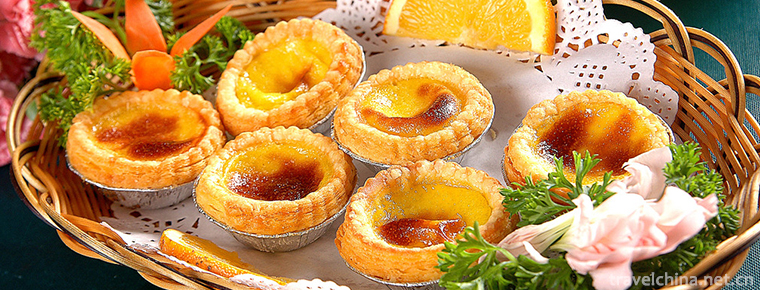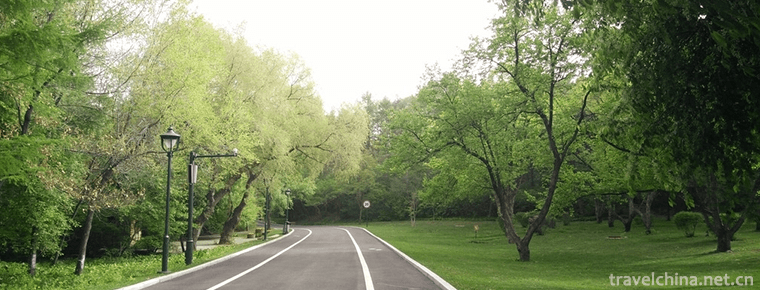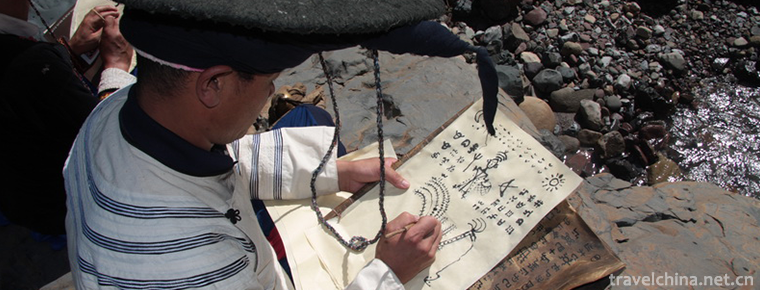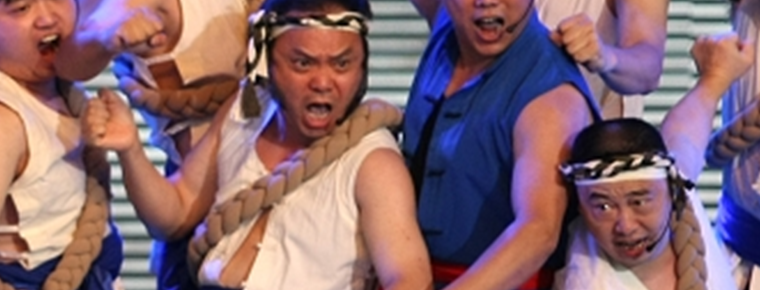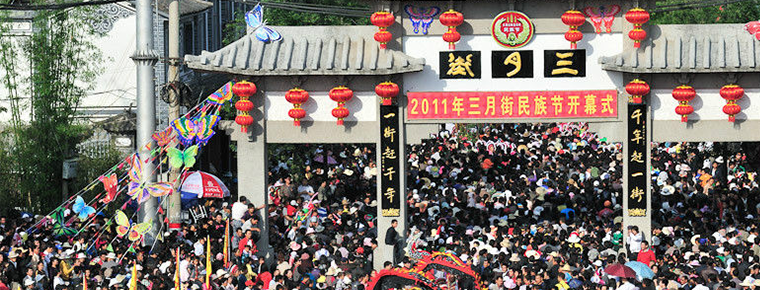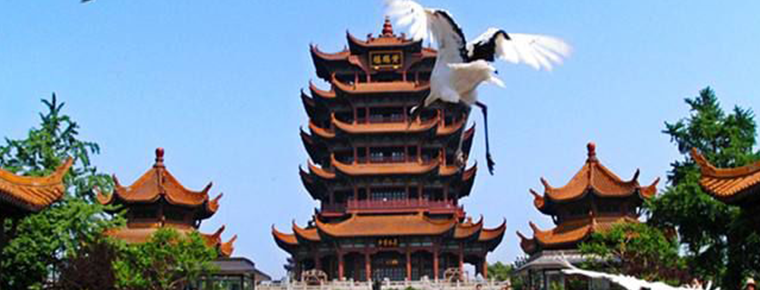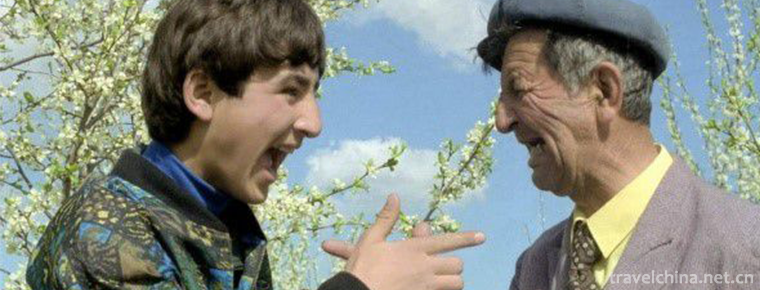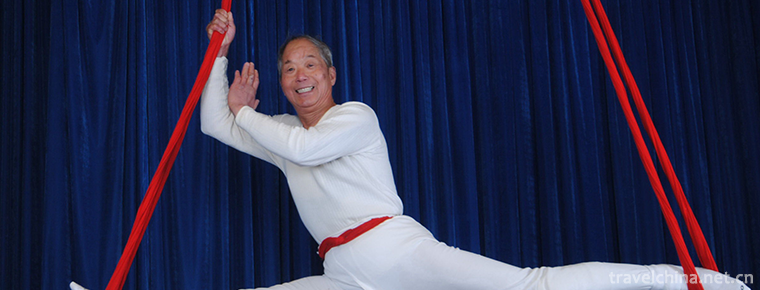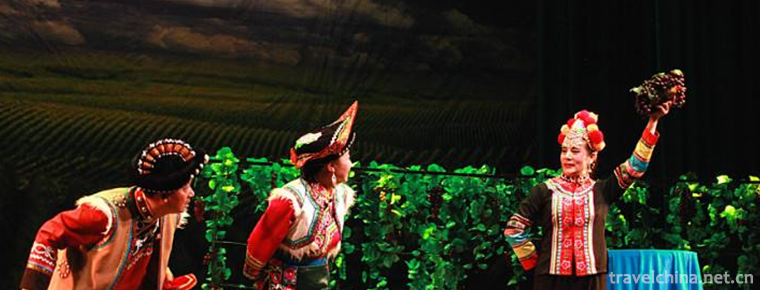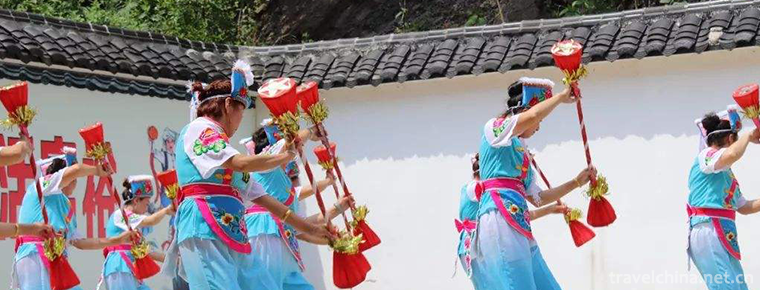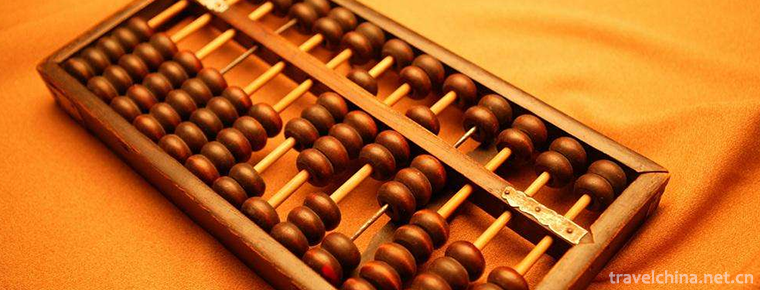Legend of Zen ancestors
Legend of Zen ancestors
Huangmei is the birthplace of Chinese Zen culture. There are six ancestral courts of Zen in China, two of which are exclusive in this county. The four ancestors temple and the five ancestors temple in the thousand-year-old ancient temple are situated in Xishan and Dongshan, respectively. Among the six ancestors of Zen, the four ancestors Daoxin, the five ancestors Hong Ning and the six ancestors Huineng all practiced and inherited the bowl in this county. Stories about Zen ancestors are widely circulated here, forming the legend of Huangmei Zen ancestors.
In June 2011, the legend of Zen ancestors declared by Huangmei County of Hubei Province was listed in the third batch of national intangible cultural heritage list with the approval of the State Council.
historical origin
Chinese Buddhism Zen was introduced by Indian monk Bodhidharma. Damo lived in the Shaolin Mountains of Songshan, known as the ancestor. In front of the Damo Cave, Shenguang seeks the Master's Dharma, breaks his arm and stands in the snow. The clothes of Damo are named Huike, the second ancestor of Zen. Sanghuang and Daoxin are the three and four ancestors of Zen, and the four ancestors are in Huangmei. Five Zen ancestors, Honghong, lived in Huangmei Dongshan Mountain with a large number of followers, known as the "Dongshan Famen" in history. Huineng came from Guangdong Province and was closely influenced by Hong Ninyi's return to the south. He was the sixth ancestor of Zen and initiated the style of "epiphany". Since then, Zen has flourished all over the world, far and abroad. From the development history of Zen, we can see that the monks have made great contributions to the inheritance of Zen when they are in danger. He also innovated the regulation of Zen "passing down from heart to heart without writing", and with his lifelong experience, he finally completed the Ming of Confidence, which laid the theoretical foundation of Chinese Zen. Monk Guang built temples here, inherited the clothing law, and wrote the Ming of Confidence. Therefore, the status and influence of Sanzu Temple is also very significant. In the southwestern part of Anhui Province, Tianzhu Mountain, Sikong Mountain and Huangmei East Mountain constitute the "Golden Triangle" zone of Zen Buddhism. Sanzu Temple is the most influential holy place of Zen Buddhism. It was bestowed by emperors of past dynasties and is a pilgrimage place for believers at home and abroad.
The legends of Huangmei Zen ancestors are widely spread among the people. Most of these stories originated in Sui and Tang dynasties. Since the Tang Dynasty, Huangmei has been a sacred place of Zen, with two great Zen ancestral courts: the Four-ancestor Zhengjue Zen Temple and the Five-ancestor Zen Temple. The two monasteries stand side by side, and the world is the best. Historically, there is the saying that "Qihuang Chanlin is the best in the world and Buddhist events ask Huangmei". For thousands of years, the lofty status of the four and five fathers in Buddhism and their legendary life have produced a series of legends about their birth, growth, monkship, cultivation and transmission of Dharma. These legends originated from Huangmei and spread all over the world. Selected from the classical literature of Japan and Korea, it is a legend with world influence. Similar legends have been quoted in authoritative historical books and literary works such as Tang Wude Biography of Lamps, Biography of Continued Senior Monks and Dream of Red Mansions, which shows that folk literature has a tremendous influence on writers'literature; a large number of legendary stories of Huangmei Zen ancestors have been included in anthologies such as Chinese Zen Temple and Chinese Buddhist Tales; Four-ancestor Dao Xin of Immortals and Purple Clothes bestowed by Tang Taizong. 》 More than 100 legendary stories, such as "Five Fathers Becoming Home", "Five Fathers Ren Xian", "Six Fathers Huineng", have been handed down from mouth to mouth and have been handed down among the people so far.
Over the past 1300 years, the legend of Huangmei Zen's ancestors has left behind folk customs such as "Three March Temple Fair", "Nine Dynasties Washing", "Mustard Soup Eating". It has penetrated into various forms of folk art, such as music, painting, dance and crafts. It has also penetrated into many fields, such as calligraphy and painting, film and television, hundreds of lectures and drama. It is vivid.
Story legend
Five-ancestor Hong Nin's Clothes Bowl
In the Southern and Northern Dynasties, Buddhist Zen spread to the fifth ancestor, Master Hongren, who opened the altar in Huangmei, Hubei Province at that time. He had more than 500 disciples under his command. Among them, the outstanding disciple was Master Shenxiu. Shenxiu is also acknowledged as the successor of Zen clothing bowl. As Hong Nin grew older, he was looking for an heir among his disciples. So he told them that everyone would make a Jizi (Zen poetry) and pass it on to whoever did it well. At that time, Shenxiu wanted to inherit the vessel, but he was afraid to do it for the purpose of inheriting the vessel, which violated the Buddhist inaction and artistic conception. So he got up in the middle of the night and wrote on the courtyard wall that a Jizi body was a bodhi tree and his heart was a mirror. Sweep regularly, don't make dust. This capital city means to take care of one's mind and state of mind at all times, and to resist temptation and evil spirits from outside through constant practice. It is a mentality of joining the WTO, emphasizing the role of practice. This understanding is not very consistent with the Zen Mahayana epiphany, so when you see this Jizi the next morning, you all say yes, and they all guess that it was made by Shenxiu and admired very much, Hong Nin did not make any comments after seeing it. Because he knows that Shenxiu has not yet had an epiphany.
At this time, when the monks in the temple were talking about the capital, they were heard by a firehead monk in the kitchen, Master Huineng Zen. Huineng asked others to take him to see the capital. One thing to be explained here is that Huineng is illiterate and he can't read. He listened to other people say this Jizi, then said that this person has not yet grasped the true meaning of ah. So he made another Jizi himself, begging others to write next to the Shenxiu Jizi. The Bodhi had no trees, the mirror was not a platform, there was nothing, where to cause dust. With this capital, we can see that Huineng is a man of great wisdom (later generations say that he was reincarnated by the 10th Bhikkhu). His capital fits well with the philosophy of Zen epiphany. It is an attitude of birth. The main meaning is that the world is empty. Seeing everything in the world is empty words, and the heart is empty words, there is no need to resist the temptation of the outside world. Everything passes through the heart without leaving any trace. This is a very high realm of Zen Buddhism, and those who appreciate this realm are so-called enlightenment.
When Hong Nin saw the capital, he asked the people around him who wrote it. The people on the side said it was Huineng. So he called Huineng and told him in front of him and other monks that it was messy and nonsense, and erased the capital in person. Then Huineng hit Huineng three times on the head and left. At that time, only Hui could understand the meaning of the Five Ancestors, so he went to Hongren's Zen Chamber at 3 pm, where Hongren explained to him the Diamond Sutra, one of the most important Buddhist classics, and passed it on to him. Then in order to prevent the Shenxiu people from hurting Huineng, Huineng escaped overnight. So Huineng traveled to the South overnight, and after 10 years of seclusion, he founded the Southern Sect of Zen in Putian Shaolin Temple. When Shenxiu learned about it the next day, he sent people to pursue Huineng, but did not. Later, Shenxiu became a master of protecting the country in the Liang Dynasty and founded the Northern Sect of Zen.
Five ancestors Hongren comprehends the reason of Taoism
Master Hongren, the Five-Patriarch, was born in Huangmei, Qizhou, under the common surname of Zhou. According to Volume 1 of Wudeng Huiyuan, his previous life was a pine planter in the Broken Head Mountain.
Zhusongdao once asked Yuzu Daoxin (who was stationed in Tintou Mountain at that time): "Dharma can be heard (can I hear the Dharma you preach)?" The four fathers answered, "If you are old enough to get rid of (or if you have heard of) evil things, can you widen them?" If I come again, I may be late for you. When the planter heard this, he immediately left his four ancestors and came to the riverside. He happened to meet a girl squatting there to wash clothes. So he went up and asked, "Is boarding good?" The girl answered, "I have father and brother, but I can ask for it." The planter said, "I dare to go if you agree with me." The girl listened, nodded her head, and the Matsushita man turned and walked away with his stick.
Originally, the girl surnamed Zhou was the fourth daughter of the Zhou family, and she was not married. Strangely enough, the teenager became pregnant soon after the laundry went home. In those days, unmarried teenage pregnancies were a shameful affair against customs. So the girl's parents disgusted her and drove her out of the house. In this way, the girl will have no home, life is helpless, had to live a vagrant life. During the day she worked as a servant in the village, spinning and weaving cloth, and at night she spent a night under the eaves of a shop. After a few months, she finally gave birth to the unintelligible child. She herself felt very filthy and unlucky, so she secretly threw the child into a dirty ditch. The next day, when she went to see him, she was shocked to find that the child was floating upstream of the ditch and that he was tender and bright, and seemed to have enough energy, so she could not help holding him in her arms. She secretly resolved that no matter how much humiliation she would suffer in the future, she would bring up the child. In this way, she took her children, begging along the village, day after day, year after year, the people in the village called the child "no surname child".
In a twinkling of an eye, the child grew up to seven years old. One day, Zhou, with his children begging, met a monk on the way. This monk is a Buddhist monk of the Four Patriarchs. The four fathers examined the child carefully. Finding the child's peculiar skeleton, he sighed, "This is not an ordinary child. Looking closely, there are only seven of the thirty-two husbands. Although his appearance is not as perfect as Buddha's, if he is a monk, he will surely do Buddhist deeds in twenty years'time. He will inherit the wisdom of Buddha's Dharma and be able to support all living beings.
So he asked the child, "What's his surname?"
The child said, "Surname is there, not a permanent surname (I have a surname, but not a common surname)."
Four ancestors asked: "What is the surname (neither the ordinary surname, what is the surname)?"
The child said, "It's Buddha nature."
Four ancestors asked again, "You have no surname (don't you have a surname)?"
The child said: "Sex is empty, so there is no (surname is only a causal pseudonym, its nature is empty, so there is no surname)."
Four ancestors listened, secretly happy to know that the child is a magic weapon, so ordered the waiter to come to the child's mother, asked her to promise to let the child go home. The mother of the child remembered the child's life and many strange things happened to him. Knowing that all these things were the cause of eternal life, she happily agreed to the request of the four fathers and gave the child to the four fathers as a disciple. Four ancestors gave him the code name "Hong Ning".
The character, sophistication and comprehension of Master Hong Nin made him gradually become a model for his fellow Buddhists. When Taoist Zen Master was still alive, many people came from all sides to admire him and approached him. The so-called "Four Sides Request Benefits" and "Over a Thousand Months". This made the four fathers very happy. Therefore, the four fathers often showed him the purpose of insight, and constantly randomly hammered his way into the realm of pure fire.
Finally, one day, the four fathers passed on his vestment to Master Hong Ning. Master Hong Nin became the five ancestors of Zen in Zhongtu.
Wisdom Need to Find the Way to Dongshan
Huineng's common surname is Lu, and his ancestral home is Fanyang (now Zhuoxian County, Beijing). He became the common people of Xinzhou (now Xinxing County, Guangdong Province) because his father demoted him to Lingnan. Huineng's father died early, leaving behind orphans and widows, and his family was poor. Huineng lived early on by selling firewood and firewood. About the year of Xianheng (670-674), Huineng heard that the five Zen ancestors, Hong Nin, preached in Chizhou, so he set up his mother and went to Huangmei to seek advice from Hong Nin as a pedestrian.
When Hong Ning saw Huineng, he asked, "Where are you from and what do you want to get from me?" Huineng answered, "Disciple is an ordinary citizen in Lingnan New State. He came all the way to the Master's door. He didn't want to get anything else, but wanted to become a Buddha." The five ancestors said, "You are from Lingnan and an uncivilized barbarian. How can you become a Buddha?" Huineng answered, "Although there are regional differences between the South and the north, the nature of Buddha is not at all different from that of the South or the north. Although my Lingnan barbarians are different from their masters in appearance, what are the differences in their Buddhist nature?
After hearing these words, the five fathers wanted to continue talking with him, but when they saw that many disciples were around, they asked Huineng to join us in the labor. Huineng said, "I still have something to tell the Master. Disciples often germinate the idea of wisdom in their hearts: Fukuda is indispensable to their nature. I wonder what the Master wants me to do? The Five Patriarchs said, "I can't imagine that you are a barbarian with great talent! Don't talk about it any more. Go and work in the backyard block. Huineng withdrew as he said and went to the backyard block. A pedestrian assigned him to chop wood and step on rice for eight months.
Shuangfeng Mountain Xiading "Shuangxiu"
At the invitation of Taoist believers, Buddhist monks left Jizhou and came to Jiangzhou (Jiujiang) to live in Dalin Temple in Lushan. In the 7th year of Wude (624) in the early Tang Dynasty, at the invitation of Qizhou Taoist and secular believers, he went to Jiangbei to promote Buddhism, and built a temple in Shuangfeng Mountain (also known as Baotou Mountain) west of Huangmei County to spread Buddhism in Xichuan. Later known as the Four Ancestors Temple. Here, Taoist Zen Master lived for more than 30 years. He practiced both agriculture and Zen, and Taoism flourished. Fayin spread far and wide. There were more than 500 disciples in Zhuzhou. Among them, Hongren was the most famous one.
During the reign of Zhenguan in Tang Dynasty, Emperor Taizong admired the taste of Taoist Zen Master very much. He wanted to see the style of Zen Master, so he ordered his grandfather to go to Beijing. However, on the grounds of old age and illness, the grandfather declined graciously. This was repeated three times. When the fourth imperial edict was issued, the emperor fired up and ordered the messenger to say, "If you don't get up, you can get the first one" (this time, if he doesn't come again, he will bring his first one to see the couplet). When the messenger came to the mountain gate to read the Holy decree, the ancestor turned his neck to the edge and looked just like that. The envoy was so surprised that he dared not move his knife that he hurried back to the capital and reported the truth to the emperor. Taizong emperor listened, more and more admiration for his ancestors, and gave them precious tea to fulfill their aspirations.
Taoist Zen Master was silent on the 4th day of September in the second year of Yonghui (651) and seventy-two in the Spring and Autumn Period. Before he died, he gave orders to Master Hong Nin and warned his disciples, "Every method is free. You and others protect their minds and streamline the future. Speech, sit back and die. Hou Ji is a great doctor and Zen master.
Inheritance status
On December 2, 2011, accompanied by Pan Baijia, director of Huangmei County Cultural Library, and Hu Guangzong, deputy director of Huangmei County Cultural Library, the reporter interviewed Chen Yuanqiu, a provincial representative successor and retired teacher of Huangmei Zen ancestor legend. Mr. Chen has been a Chinese teacher since he was 18 years old. He has taught primary, middle and high schools successively. When he preaches the legends of Zen ancestors, he can not only make them clear and easy to understand, but also make them sound and emotional and vivid. When explaining the legends of Zen Buddhism, people pay attention to the oral, collective, variability and inheritance of folk literature, which is called "storyteller" locally.
In order to make more people understand the legend of the ancestors, Mr. Chen compiled and published the "Selected Notes and Legends of the Five-ancestor Temple Poems" at his own expense in 1999.
In December 2008, after being named as the provincial inheritor of "non-legacy", Mr. Chen was more diligent in using various occasions to preach the legend of Zen ancestors to people. In 2010, he compiled and published The Five Ancestors Temple of the World Zen Forest, which contains two parts: the scenic spots of the Zen Forest and the legends of the Zen Forest. He sent the book to his town's primary and secondary schools for free as a school-based textbook and was invited to lecture at the school. He often used activities such as "Zen Culture Summer Camp" and "Reading for an hour after class" to tell Chinese and foreign tourists, students and other related stories about the legend of Zen ancestors. Mr. Chen will tell more than 100 stories about Zen customs, figures and legends. He said that he should be a "non-legacy" successor with unswerving determination.
Inheritance and protection
development planning
In order to protect, inherit and develop Zen culture, Huangmei County successfully held two Zen Culture Summit Forum, which expanded the influence of Huangmei Zen culture at home and abroad.
How to polish Zen cultural business cards and promote the development of tourism is a subject before the people of Huangmei.
Huangmei county Party committee and county government put forward the strategy of economic and social development of the whole county, which is "high leading, take off two wings, develop three sides and build four cities". Relying on the rich and unique tourism resources of Zen culture, we strive to build the Zen culture tourism area in eastern Hubei. The overall tourism development plan of Huangmei County and the detailed control regulations of Wuzu Temple scenic spots have been completed successively with high starting point and high quality. It has absorbed 300 million yuan to rebuild and restore four ancestor temples, five ancestor temples, old ancestor temples, Miaole temples and other temples. It has initially formed a large pattern of Zen cultural tourist areas in eastern Hubei, with five ancestor temples in the east, four ancestor temples in the west, Miaole temples in the South and Lao ancestor temples in the north.
Protection activities
In November 1994, Zhao Puchu, chairman of the National Buddhist Association, attended the first International Symposium on Zen and Chinese Culture, held in Huangmei County, Hubei Province, by the Chinese Institute of Buddhist Culture, the Hubei Society of Philosophical History and the Anhui Society of Philosophical History, and the Henan Society of Philosophical History. Participants and experts and scholars at home and abroad discussed and confirmed that Huangmei Wuzu Temple is the birthplace of Zen in China, and Wuzu Hongren Master is the founder of Zen in China. After the meeting, entrusted by the organization of the conference, press releases were sent to the relevant newspapers and radio stations in China. The first issue of Fayin magazine, sponsored by the Chinese Buddhist Association in 1995, the second edition of the Chinese People's Political Consultative Conference on December 20, 1994, the first edition of Unity Daily on November 30, 1994, Hubei People's Radio Station, Hubei United Front Magazine, Nanjing Jinling Radio Station, China. Sound of the Straits Radio and other news units have issued news on the conference.

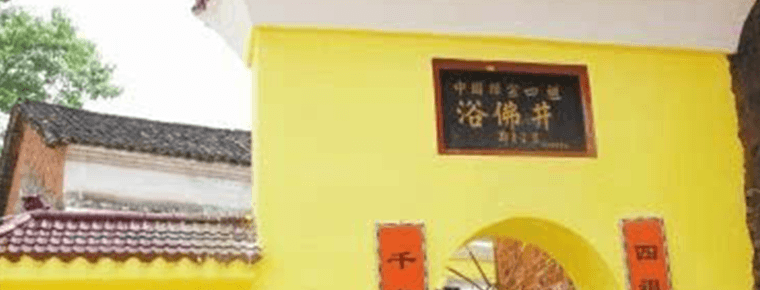
-
Baiyun Mountain
located in Baiyun District of Guangzhou City, Guangdong Province.
Views: 164 Time 2018-10-12 -
Portuguesestyle egg tarts
Portuguese egg tart, also known as Portuguese cream tower, caramel Mejit egg tart. Portuguese tart, known in Hong Kong, Macao and Guangdong, is a small cream pastry pie..
Views: 178 Time 2018-10-31 -
Shenyang Botanical Garden
Shenyang Botanical Garden, located in Dongling District of Shenyang, also known as Shenyang World Expo Garden and Shenyang World Horticulture Expo Garden.
Views: 223 Time 2018-12-02 -
Bemo painting
Bimo Painting of the Yi Nationality is a kind of picture on paper or animal skin, bark, bamboo slips, stone, wooden boards and other carriers painted by Bimo, a priest of the Yi Nationality..
Views: 245 Time 2019-04-04 -
Song of Sichuan river
Chuanjiang chant is a kind of traditional folk singing form that the shipworkers in Chuanjiang valley of Sichuan and Chongqing area lead the singing by the trumpeters for unified movement and rhythm.
Views: 161 Time 2019-04-19 -
March Street Dali
"Yuejie", or March Street of Dali, also known as "Guanyin City, also known as the March Meeting of Dali, today also known as the National Day of March Street, is a grand festival and st.
Views: 198 Time 2019-04-23 -
Legend of Yellow Crane Tower
The legend of the Yellow Crane Tower has a long history, and has been accompanied by the repeated destruction and construction of the Yellow Crane Tower.
Views: 107 Time 2019-05-04 -
Chak Chak
"Chuck Chuck" is a highly interactive dialogue between two or more people. According to the different content and language characteristics, it can be roughly divided into five types:.
Views: 87 Time 2019-06-10 -
Adjustment and suspension
Lifting is a unique folk sports event in Shaoxing City, Zhejiang Province. Appeared in the middle and late Qing Dynasty, the tuning and hanging actors were named "tuning and hanging" because.
Views: 90 Time 2019-06-21 -
Yi opera
Yi Opera, a local traditional drama in Dayao County, Yunnan Province, is one of the national intangible cultural heritage..
Views: 400 Time 2019-07-12 -
Encouragement of Sangzhi Battle
Sangzhi Bai people's fighting drum is mainly distributed in seven Bai villages and towns, such as Mahekou, Maidiping, Furong Bridge, Hongjiaguan, Zoumaping, Linxi River and Liu Jiaping. In other half .
Views: 419 Time 2019-07-25 -
Calculation with an abacus
Liu Hong (129-210 A.D.), a character Zhuo, a descendant of Liu Xing, the king of Lu in the Eastern Han Dynasty, is an outstanding astronomer and mathematician in ancient China. He is the inventor of a.
Views: 160 Time 2019-08-10

